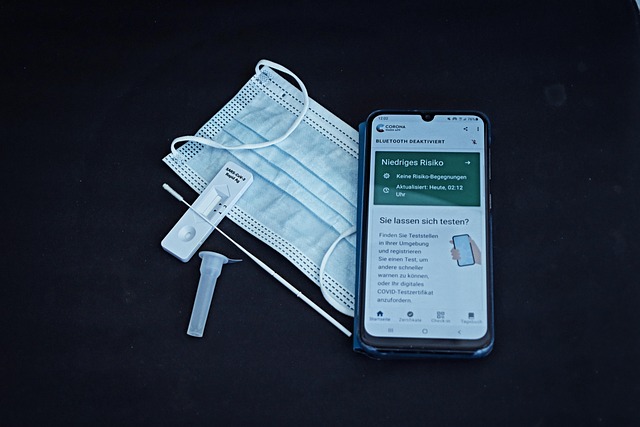Conducting a blood test at home in the UK is an accessible way to monitor cholesterol levels, crucial for heart health. Using over-the-counter kits, individuals can measure total, LDL (bad), and HDL (good) cholesterol, with results compared against NHS guidelines. Accurate interpretation empowers proactive health management and necessary lifestyle adjustments or medical interventions to maintain optimal cholesterol levels, reducing heart disease and stroke risks.
“Discover the power of a blood test at home in the UK for monitoring your cholesterol levels. This comprehensive guide delves into the world of lipid profiles and their significance in assessing cardiovascular health. Learn how easy it is to conduct a home cholesterol test, understanding the results, and taking control of your well-being. Whether you’re seeking prevention or management, this article equips you with knowledge to navigate cholesterol testing effectively.”
- Understanding Cholesterol and Blood Tests
- How to Conduct a Home Cholesterol Test in the UK
- Interpreting Your Cholesterol Level Results
Understanding Cholesterol and Blood Tests
Cholesterol is a waxy, fat-like substance found in all cells in your body. It plays an essential role in various bodily functions, including helping to form cell membranes and producing hormones. However, high cholesterol levels can increase the risk of heart disease and stroke. This is where blood tests come into play. A blood test at home UK is a convenient way to check your cholesterol levels from the comfort of your own home.
By analysing a small sample of your blood, healthcare professionals can determine your total cholesterol level, as well as measuring LDL (low-density lipoprotein) and HDL (high-density lipoprotein) cholesterol, known as ‘good’ and ‘bad’ cholesterol respectively. Understanding these results is crucial in managing your health effectively and identifying any necessary lifestyle changes or medical interventions to maintain optimal cholesterol levels.
How to Conduct a Home Cholesterol Test in the UK
Conducting a home cholesterol test in the UK is now easier than ever, thanks to advanced over-the-counter kits available for purchase. These tests offer a convenient and non-invasive way to monitor your cholesterol levels from the comfort of your own home. To start, choose a reputable brand that provides accurate results and follow the instructions provided carefully. Typically, this involves pricking your finger to draw a small drop of blood, which is then applied to a test strip or card. After a short processing time, the results will be displayed in the form of numbers indicating your total cholesterol, LDL (low-density lipoprotein), HDL (high-density lipoprotein), and sometimes triglyceride levels.
Ensure you follow the kit’s guidelines for proper sampling and timing to guarantee accurate readings. Many kits also provide a privacy seal or secure packaging to protect your personal health information. Once you have your results, compare them against the recommended ranges set by the UK National Health Service (NHS). If your cholesterol levels are outside the healthy range, it’s advisable to consult with your healthcare provider for further guidance and potential lifestyle changes or medical interventions. Regular home testing can be a powerful tool for proactive health management.
Interpreting Your Cholesterol Level Results
Interpreting your cholesterol level results from a blood test at home in the UK is an essential step in understanding your cardiovascular health. The most common measure is total cholesterol, which refers to the combination of low-density lipoprotein (LDL), high-density lipoprotein (HDL), and triglycerides. Generally, a total cholesterol level below 5mmol/L is considered optimal, while levels between 5-7mmol/L are seen as borderline high, and anything above 7mmol/L is categorised as high.
Your doctor or healthcare provider will consider various factors when interpreting your results. For instance, they might take into account your age, sex, family history, and lifestyle. High LDL levels, often referred to as ‘bad’ cholesterol, can increase the risk of heart disease, while HDL, known as ‘good’ cholesterol, plays a protective role by removing LDL from the arteries. Maintaining healthy cholesterol levels is crucial for preventing cardiovascular issues, and lifestyle changes or medications may be recommended based on your test results.
Cholesterol level testing with blood tests, especially when conducted at home using readily available kits in the UK, empowers individuals to take control of their heart health. By understanding cholesterol levels and interpreting results accurately, folks can make informed decisions to enhance their well-being. A simple blood test at home provides a direct pathway to navigating and managing cholesterol, making it a convenient yet powerful tool for maintaining a healthy lifestyle.
